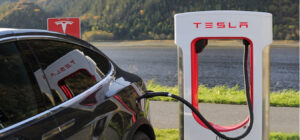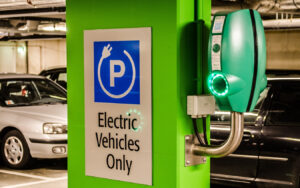Advantages and disadvantages of electric cars
The discussion surrounding the advantages and disadvantages of electric cars has become a hot topic in recent years. As the world grapples with environmental issues and explores sustainable solutions, electric vehicles (EVs) have emerged as a promising alternative to conventional cars.
Understanding the concept of electric cars (vehicles)
Though electric cars are often viewed as the future of transportation, it is very important to understand their mechanisms, pros, and cons before deciding to buy one.

An electric car/electric vehicle (EV) is an automobile powered entirely or partially by electricity from a battery that requires recharging (PC Magazine, 2023). It is powered by an electric motor instead of an internal combustion engine (ICE).
Conventional cars run on gasoline or diesel, while electric vehicles are powered by electricity. This electricity is stored in a battery pack that can be recharged through an electrical power outlet or a dedicated charging station.
Types of electric cars (vehicles)
There are mostly three types of electric vehicles i.e. Battery Electric Vehicles (BEVs), Plug-in Hybrid Electric Vehicles (PHEVs), and Hybrid (HEVs). BEVs run entirely on electricity, whereas PHEVs have both an electric motor and a conventional engine.
Hybrid Electric Vehicles (HEVs) are also powered by electricity and a petrol or diesel engine. However, unlike a PHEV, a HEV cannot be plugged into the mains, as the engine is still the main power source (RAC, 2023)
Advantages of electric cars
Environmental friendliness
Electric cars are environmentally friendly. Since they run on electricity, they emit no tailpipe pollutants, reducing their overall carbon footprint. This is particularly beneficial in urban areas, where air pollution is a significant concern.
Energy efficiency
Electric cars are highly energy efficient. As they directly convert electricity into movement, they are more efficient than traditional cars. In fact, an EV can be more than 70% efficient from the moment it is turned on (EDF, 2023).
Cost-effectiveness
One of the major advantages of electric cars is cost-effectiveness. The cost of electricity is generally lower than that of gasoline, and the maintenance costs are also reduced as electric cars have fewer parts (EDF, 2023).
Better driving experience
Electric cars offer better driving experience. They provide smooth operation, and quick acceleration.
Free parking
In many cities, there are free and/or priority parking bays for electric cars. This is a great convenience for the vehicle owners.

Reduced noise pollution
Electric cars are much quieter than petrol and diesel vehicles. This reduces noise pollution which is a big problem in large towns and cities.
Tax advantages
Electric vehicles can also offer business owners and employees tax advantages. Business owners who lease electric cars and use them for business purposes, can deduct the full monthly payments from their income resulting in a lower corporation tax bill (Anderson, 2023).
Disadvantages of electric cars
Limited range
One of the main disadvantages of electric cars is the limited range. While advancements in battery technology have improved the range significantly, it still falls short compared to conventional cars. This is coupled with the lack of widespread charging infrastructure, which can make long-distance travel challenging.
Higher price
Electric cars are generally more expensive than their gasoline counterparts. However, this cost is often offset by lower operating costs over the vehicle’s lifetime.
Battery recharging issues
The time required to recharge the battery is longer compared to refuelling a conventional car. While fast-charging stations are becoming more common, they are still not as widespread as petrol/gas stations.
Key players in the electric car market
Several companies are leading the charge in the electric car market. BYD (a Chinese conglomerate) and Tesla, with their impressive range of electric cars, are perhaps the most well-known ones. However, other traditional car manufacturers like VW, Nissan, Chevrolet, and BMW are also making significant strides in the electric car market.
Moreover, tech giants like Google and Apple are also exploring the electric car market. With such a diverse range of players, the electric car market is set to become increasingly competitive, potentially leading to more choices and better prices for consumers.
Important factors to consider when buying an electric car
Choosing an electric car involves considering several factors. Firstly, the range of the car is crucial. Secondly, the availability of charging stations in the user’s area is another important factor.
The cost of a car, both upfront and operational, should also be considered. While electric cars have a higher buying price, they often have lower operating costs. Lastly, the car’s features, such as its performance, comfort, and technology, should align with the buyer’s preferences and needs.
The future of electric cars
The future of electric cars looks promising. China, Europe, and the United States are the three biggest markets; however, electric car sales significantly increased recently in India, Indonesia, and Thailand (IEA, 2023).
With advancements in technology, the range of electric cars is expected to increase, and the charging time to decrease. Moreover, the cost of batteries, a significant part of the total cost of an electric car, is predicted to drop, making electric cars more affordable.
Furthermore, as renewable energy sources become more prevalent, the carbon footprint of electric cars will decrease further. However, the success of electric cars will also depend on the development of charging infrastructure and the availability of sustainable materials for battery production.
Conclusion: Advantages and disadvantages of electric cars
Finally, purchasing an electric car or not? On one hand, electric cars offer several benefits, including environmental sustainability, energy efficiency, and lower operating costs. On the other hand, they have limitations, such as limited range, long charging time, and higher upfront cost. However, as technology advances and policies evolve, they are set to play an increasingly important role in the global transportation system.
Hope you like this article: advantages and disadvantages of electric cars. You may also like:
PESTEL analysis of the electric car industry
SWOT analysis of General Motors (GM)
Marketing Mix of Volkswagen (4Ps of Volkswagen)
Last date: 26 August 2023
References:
Anderson, E. (2023) It’s the end of the road for us with our electric cars, available at: https://www.thisismoney.co.uk/money/cars/article-12180805/Its-end-road-troublesome-electric-cars.html (accessed 25 August 2023)
EDF (2023) Benefits of electric cars, available at: https://www.edfenergy.com/electric-cars/benefits (accessed 25 August 2023)
IEA (2023) Demand for electric cars is booming, available at: https://www.iea.org/news/demand-for-electric-cars-is-booming-with-sales-expected-to-leap-35-this-year-after-a-record-breaking-2022 (accessed 26 August 2023)
PC Magazine (2023) Electric vehicle, available at: https://www.pcmag.com/encyclopedia/term/electric-vehicle (accessed 24 August 2023)
RAC (2023) Types of electric vehicles, available at: https://www.rac.co.uk/drive/electric-cars/choosing/types-of-electric-vehicles-evs-explained/ (accessed 24 August 2023)
Author: M Rahman
M Rahman writes extensively online and offline with an emphasis on business management, marketing, and tourism. He is a lecturer in Management and Marketing. He holds an MSc in Tourism & Hospitality from the University of Sunderland. Also, graduated from Leeds Metropolitan University with a BA in Business & Management Studies and completed a DTLLS (Diploma in Teaching in the Life-Long Learning Sector) from London South Bank University.



